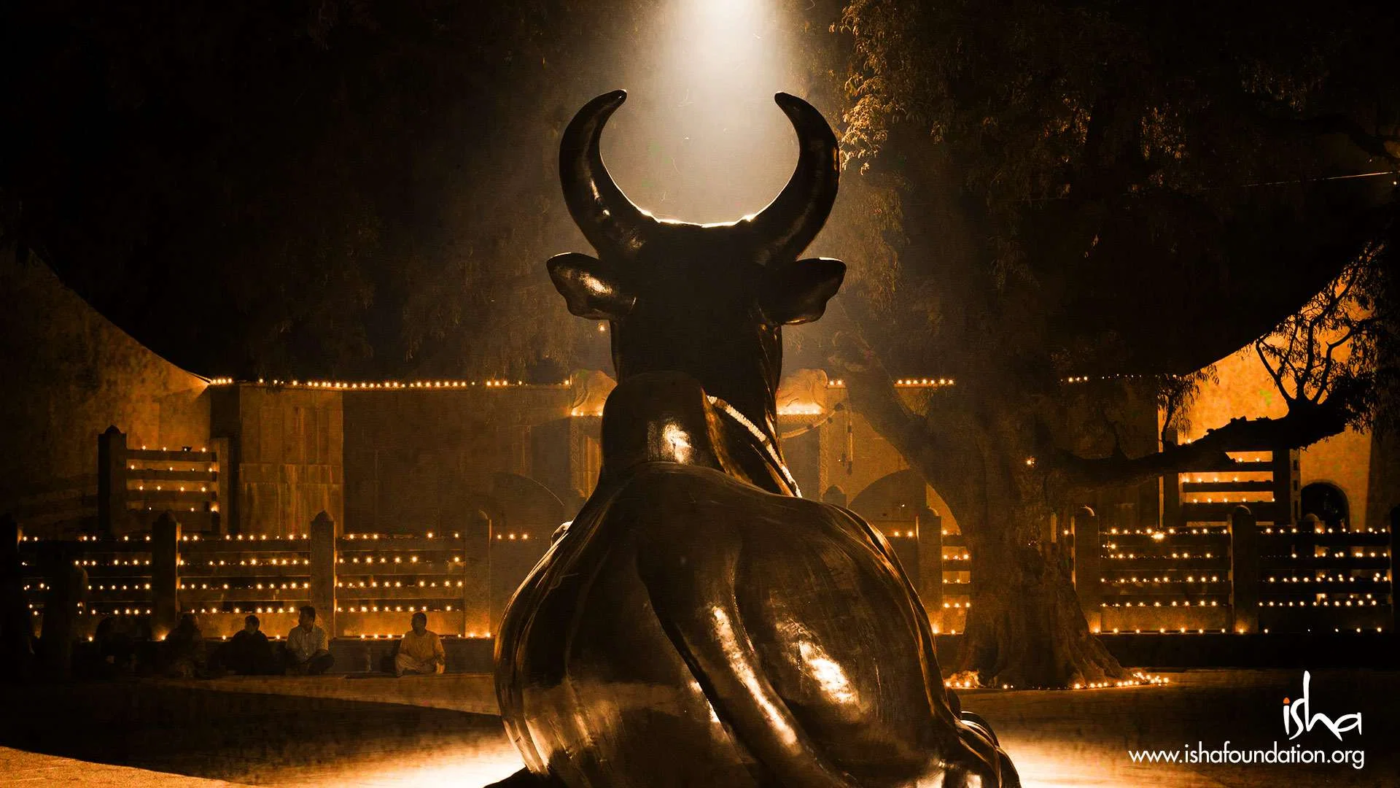Nandi bhagvan is a very important figure in Hindu worship especially in the worship of Lord Shiva. As the vehicle (vahana) of Lord Shiva Nanndi is the symbol of great devotion, strength, and discipline.
Let’s explore more about Nanndi Ji in this article;
Table of Contents
The Birth of Nandi
According to Hindu texts, Nanndi was born in the family of Sage Shilada as a result of a boon which was granted by Lord Shiva hiself because Sage Shilada undertook rigorous penance to please Lord Shiva.
From his childhood Nanndi started showing great devotion to Lord Shiva. With the progression of time Lord Shiva granted Nanndi the boon of serving as the gatekeeper of Mount Kailash and as a vahana of Lord Shiva and therefore Nanndi is frequently portrayed seated before Shiva’s shrine in Shiva temples.
Importance of Nandi in Shiva Temples

In almost every Shiva temple, a grand statue of Nanndi can be found facing the Shiva Lingam. This placement is symbolic and holds deep spiritual meaning:
- Nandi has the duty of serving as the celestial guardian of Lord Shiva’s residence which is Mt. Kailash.
- His attentive seated position where his gaze is fixed upon Shiva Lingam serves as a reminder to devotees of the significance of steadfast focus and devotion.
- It is also believed that if someone murmured their prayer into Nanndi’s ears then those prayers are conveyed directly to Lord Shiva, positioning him as a conduit for the faithful.
What does Nandi Represents
Here are some spiritual and symbolic values of Nandi Ji;
As a bull he is a representation of physical and spiritual strength. This spiritual strength reminds devotees to overcome challenges with resilience.
His calm demeanor signifies the importance of patience and a peaceful mind in spiritual practices.
Nanndi’s eternal devotion to Shiva inspires us to have faith and loyalty in our worship.
Bulls have been central to agrarian societies. Nanndi, as Shiva’s mount, emphasizes the connection between spirituality and nature.
Nanndi in Hindu Art and Culture

Nanndi is usually depicted as a majestic white bull with a hump. This white bull is adorned with ornaments. This imagery reflects his purity and divine status.
Nanndi is more than just a companion of Lord Shiva; he is a symbol of loyalty, strength, and spirituality. His presence in temples and myths inspires devotees to live a life of discipline, humility, and devotion.
If you are looking to buy authentic, premium and aromatic incense, or hawan cups for your daily puja rituals, consider buying our products by clicking this link.







